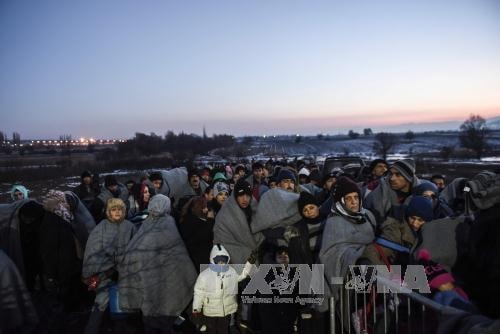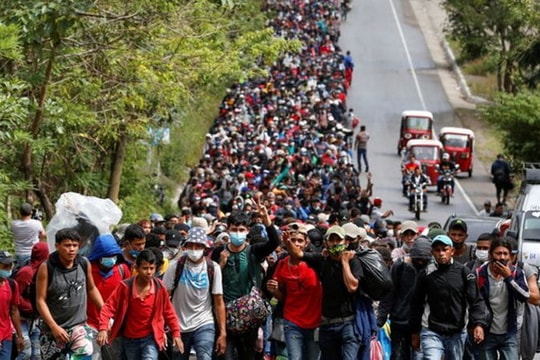EU holds emergency meeting to prevent Schengen area from collapsing
The European Union (EU) Ministers of Justice and Interior met in Amsterdam (Netherlands) to find an urgent solution to save the Schengen visa-free area from the risk of collapse due to the massive flow of migrants to Europe, accompanied by the infiltration of extremist elements.
 |
| Migrants and refugees wait to enter a refugee camp after crossing the Macedonian border into Serbia on January 23. Photo: AFP/TTXVN |
The two-day meeting of EU ministers on January 25th aimed to promote an agreement to establish a new EU border and coast guard force before June 30th. The establishment of this force was the main topic of discussion on the afternoon of January 25th when the supporting countries said that this solution would effectively prevent the flow of foreign migrants pouring to the external borders of the 28-member EU bloc, helping member countries participating in the Schengen Agreement not need to re-apply internal border checks. This is considered a solution to help the Schengen Agreement avoid the risk of collapse.
According to the latest statistics, more than 1 million migrants entered the EU in 2015, mainly people fleeing war and famine in Syria and other Middle Eastern and North African countries. Faced with the increasingly out-of-control wave of immigration, 6 countries in the Schengen free travel area decided to temporarily restore border controls - contrary to the general regulations on freedom of movement of this agreement.
Six countries have reinstated border controls, including Austria, France, Denmark, Sweden, Norway and Germany – the top destination for migrants entering Europe. The current border controls are due to expire in May 2016.
However, EU Interior Ministers can, under the provisions of the Schengen Border Crossing Rules, extend border controls for another year and a half, until the end of 2017, if they consider that the Schengen area remains at risk due to a lack of security at the EU's external borders.
Also at this meeting in Amsterdam, EU Justice and Interior Ministers will discuss the fight against terrorism and the existing obstacles between member states in exchanging information on foreign extremist terrorists, as well as finding ways to remove these obstacles.
According to News
| RELATED NEWS |
|---|


